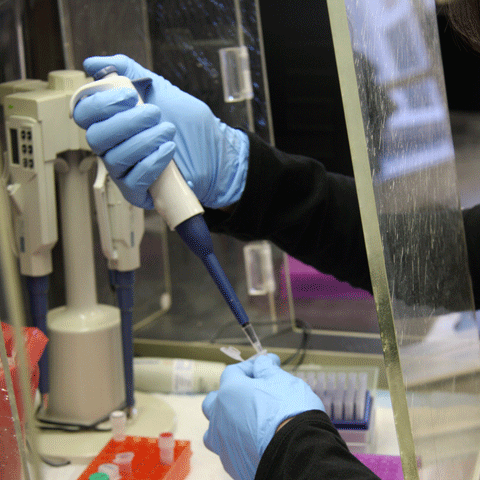Weather Alert: Fox Chase remains open, though some appointments or services may be adjusted. Patients will be contacted directly if their visit is affected. Please check Foxchase.org for updates and monitor myTempleHealth for changes to scheduled appointments.
Breadcrumb
- Home
- Thrive Cancer Blog
- State Funding is Vital to Support Life-Saving Biomedical Research

State Funding is Vital to Support Life-Saving Biomedical Research
-
In the current era of fiscal restraints, other common sources of research funding, in particular those from the National Institutes of Health (NIH), have both decreased and tended to support more conventional and conservative work, and, thus, it has become more difficult to fund visionary projects.
In 2001, Pennsylvania allocated 19 percent of its Tobacco Master Settlement Agreement (MSA) funding annually to life-saving biomedical research through the Commonwealth Universal Research Enhancement (CURE) program. While these funds have led to research advances in cancer, cardiovascular disease, diabetes, infectious diseases, and public health, as well as grown Pennsylvania’s economy, they frequently come under fire amid today’s challenging fiscal landscape.
Once again, CURE funding is being threatened. In the fall of 2013, an arbitration panel ruled that Pennsylvania’s annual payment from the tobacco settlement would be reduced by approximately $180 million. This month, Attorney General Kathleen Kane went to court to have that ruling overturned. (Philadelphia Inquirer, March 2, 2014).
For the last thirteen years, the CURE program has been crucial to Pennsylvania research institutions such as Fox Chase Cancer Center, and its loss is keenly felt. The CURE program enabled our scientists to explore innovative projects with potentially high reward – exactly the kind of cutting-edge research we need to do to truly advance our mission, which is to prevail over cancer, marshaling heart and mind in bold scientific discovery, pioneering prevention, and compassionate care.
In the current era of fiscal restraints, other common sources of research funding, in particular those from the National Institutes of Health (NIH), have both decreased and tended to support more conventional and conservative work, and thus it has become more difficult to fund visionary projects.
The return on investment for the Pennsylvania CURE funds – both economically (further grants, patents, etc.) and scientifically – have been tremendous, and we fully support the efforts of the Attorney General to seek their restoration.
—————————————————————-
The Pennsylvania Cancer Alliance is a coalition of the state’s leading research institutions including Drexel University, Fox Chase Cancer Center of Temple Health, Kimmel Cancer Center at Jefferson, Penn State Hershey Cancer Institute, Temple University, University of Pennsylvania, University of Pittsburgh Cancer Institute, and The Wistar Institute. Formed in 1998, the Alliance works to support the allocation of a portion of the proceeds of the tobacco settlement agreement to support research and prevention of diseases directly linked to tobacco use, including cancer.
Alliance members are among the most active academic institutions in the nation with five of the members holding National Cancer Institute Center designation– more than any state but California and New York.
